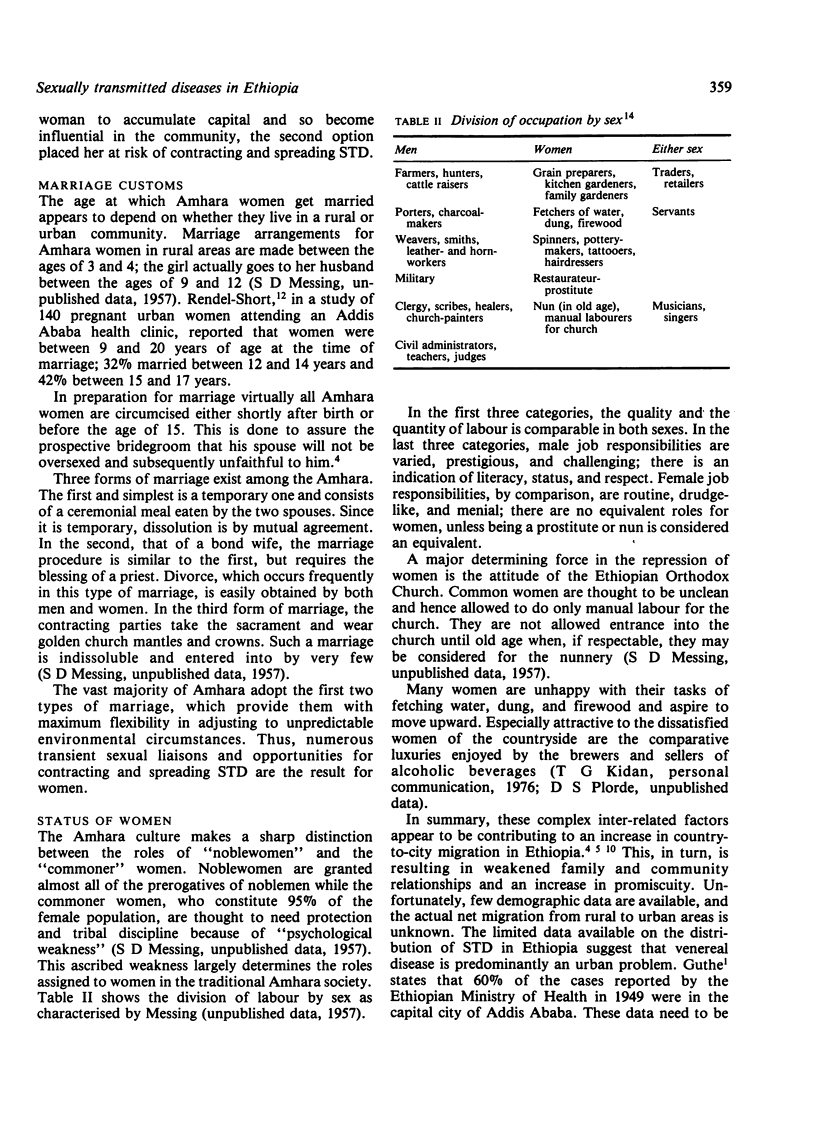Abstract
Sexually transmitted diseases in developing countries are causing concern to those responsible for their control and eradication. To gain a better understanding of the problems involved in a country struggling with development, the economic and psychosocial factors influencing the spread of STD in Ethiopia have been studied. Increased migration and urbanisation and the changing role of women have led to a rise in prostitution. Thus changes in the social structure--particularly in relation to the education and employment of women--and improved medical services are essential for the long-term control of STD.
Full text
PDF





Selected References
These references are in PubMed. This may not be the complete list of references from this article.
- Arya O. P., Bennett F. J. Role of the medical auxiliary in the control of sexually transmitted disease in a developing country. Br J Vener Dis. 1976 Apr;52(2):116–121. doi: 10.1136/sti.52.2.116. [DOI] [PMC free article] [PubMed] [Google Scholar]
- Larsson Y., Larsson U. Congenital syphilis in Addis Ababa. Ethiop Med J. 1970 Oct;8(4):163–172. [PubMed] [Google Scholar]
- Plorde J. J., Kidan T. G., Wright L. J. Penicillin sensitivity of gonococci in Ethiopia. Br J Vener Dis. 1973 Jun;49(3):260–262. doi: 10.1136/sti.49.3.260. [DOI] [PMC free article] [PubMed] [Google Scholar]
- Schaller K. F. Treponematoses in Ethiopia. Int J Dermatol. 1970 Jul-Sep;9(3):170–172. doi: 10.1111/j.1365-4362.1970.tb05108.x. [DOI] [PubMed] [Google Scholar]


